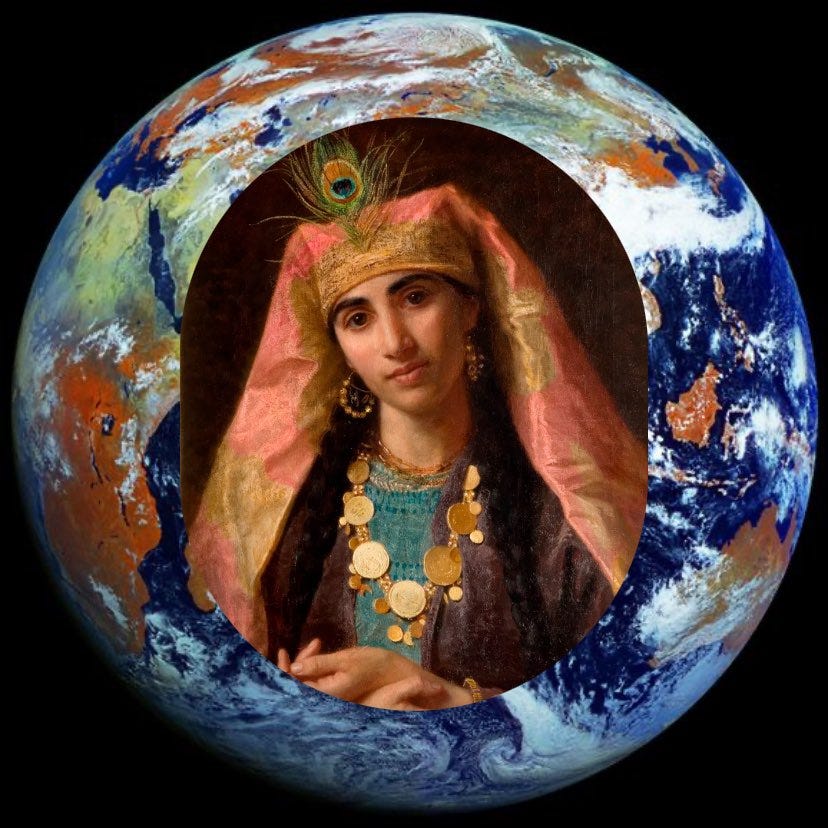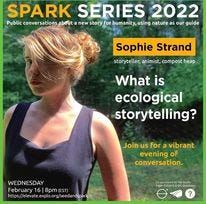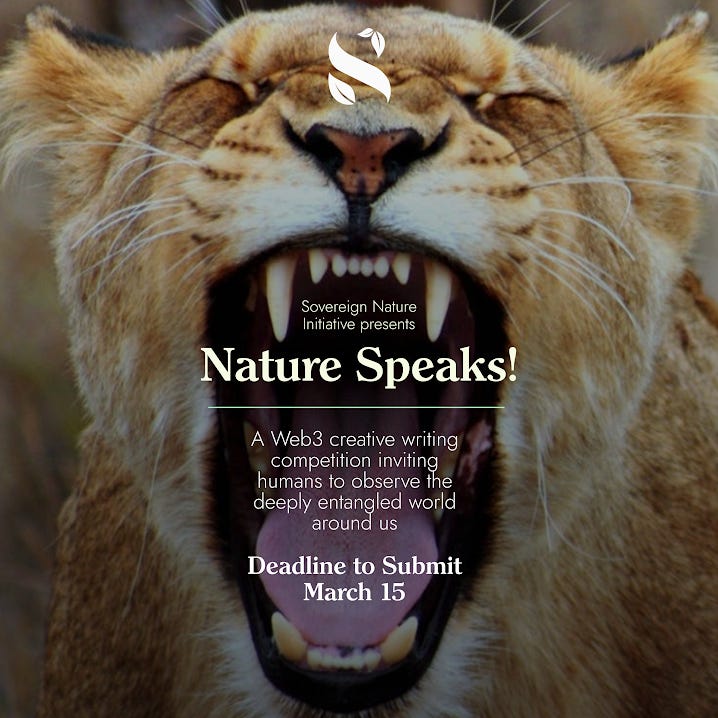(collage features the painting Scheherazade by Sophie Anderson)
“What is your emergency?” I asked my creative writing group of female high school students. “What if you only had time to tell one last story? What if your life depended on a story?” The girls looked at each other knowingly, a spark of flint-bright grief already present in their eyes. It was too early for them to know that their ability to tell a good story wasn’t academic or professional. But they already knew. Every woman knows that storytelling isn’t a hobby. It is vital. A form of survival. To summon a hero of mine, Octavia Butler constantly asserted in letters and interviews that “you must write yourself into the story” and that, "if I hadn't written, I probably would have done something stupid that would have led to my death.”
“Don’t write a story you think will be hip. Write the story that will save your life. If it saves yours, it will probably save someone else’s,” I explained immediately thinking of one of my favorite childhood stories: One Thousand and One Nights or as it was known originally in Arabic, Alf Laylah wa Laylah. In the frame narrative that embraces the polyphony of narratives, the King Shahryar weds thousands of virgins, killing them off one by one after a single night. Finally, the King has almost exhausted his kingdom’s supply of virgins. Shahryar selects the vizier’s own daughter Scheherazade. Scheherazade is described as canny and well-educated. But that does her position a slight disservice. She is in a radical state of emergency. This is not a whimsical night of storytelling. This is an adrenaline-fueled, panicked, extraordinary act of self-preservation.
One Thousand and One Nights is not a hundred-page novella a Grad student wrote about being young and single in New York City. It is shiver of air between your neck and the guillotine. Electric. This is storytelling as emergency. And Scheherazade succeeds, somehow, story by story, to save not only her life, but the potential lives of thousands of other virgins, reforming the King’s psychopathic nature.
For a long time, I have read this story from a strictly feminist perspective. It seems a perfect example of narrative backflips women must perform daily to stay alive. How do I deescalate a violent man following me home? An abusive lover? What stories do I tell myself to keep myself alive? That this hardship, this violence will somehow end? How do I force a doctor to hear my story so I receive the right treatment? How do I write myself into the story so that other people believe my worlds, my fantasies, my desires matter? But lately that interpretation has exploded. I’m less concerned with the gender component of Scheherazade, although it is extremely compelling. I find her story echoed in the masculine figure of the boy Merlin, about to be executed by the warlord Vortigern, who breaks out into a sort of mantic storytelling, producing the whole history of English kings, and saving his own life. How do you distract your executioner? How do you deescalate certain violence? How do you stop a narrative that will destroy you? By offering another narrative. And, in fact, not just offering one, but offering a multiplicity of stories. A thousand and one of them.
I want to offer an ecological reading of Scheherazade. One where Scheherazade is not a young virgin, but is in fact the very earth itself, that intertangled plenum of nested hierarchies. We have put our ecosystems, our dirt, our animal, insect, vegetal, fungal kin in a state of emergency. Like King Shahryar, we have incorrectly assumed that resources are unlimited. We will never run out of virgins to slaughter. Virgin forests. Virgin land. Untouched landscapes We will never run out of fertile soil, medicinal plants, old growth trees, and biodiversity. But it seems our narrative is flawed. What if the earth’s biosphere was Scheherazade, looking at her threatened well-being, and beginning an elaborate, life-saving storytelling? I have begun to look at the increasingly unpredictable behavior of climate systems as storytelling. Storytelling that happens on scale, both temporal and spatial, that does not subscribe to anthropocentric paradigms. Storytelling that uses forest fires as verbs, melting glaciers as protagonists, rising temperatures as narrative propulsion.
We are entering into an ecological A Thousand and One Nights of climate change. We are entering into a series of stories that are desperately trying to save their teller: the earth, Gaia, the biosphere, whatever word, for you, encompasses the sum total of spherical, gravity-bound life. Will we like King Shahryar, halt our violence, and begin to listen to a new, non-human kind of story? Will we let these stories change us and reform us? Ultimately, it matters not whether we do or do not. This series of stories will not depend on a human scribe. It will be written into the stone mantle of the Earth itself.
Thank you for reading! This has been the free version of my February Newsletter. If you sign up for free newsletter, you will receive a reposting of one of my older essays once a month. If you choose to support the paid version, you will receive two additional newsletters featuring new essays, excerpts from my upcoming books and projects, mythic research, reading lists, poetry, book reviews, ecological embodiment exercises, playlists, and personal updates.
News:
This Wednesday, February 16th at 8 p.m. EST I’ll be having a conversation about Ecological Storytelling with Sam Chastain as part of the Seed + Spark series.
I’ll be one of the judges of the Sovereign Nature Initiative’s Nature Speaks! Contest.
For this competition, SNI is calling all nature writers, insect whisperers, and mycologically-minded poets to produce an original work of prose or poetry in the ‘voice’ or from the point of view of one or more nonhuman organisms (plant/animal) or any other aspect of ‘nature.’ The goal of this competition is to invite humans to observe the deeply entangled world around us in a playful and bold way.
The grand prize winner will see their writing made into an NFT and their work will be featured at SNI’s upcoming Experimental Zone event held at Amsterdam’s De Ceuvel space in May 2022.
Submissions are due March 15. Read more details here: Contest Submission






I have returned to this essay many times since the first time you posted it, and it propels and informs my own writing, pushing me deeper into the urgency of stories I had previously been afraid to explore. Thank you.
Since I found your Substack I’ve been going back and combing through your previous essays. This one almost broke my heart but gave me a new sense of fervent hope. A feeling similar to the way of the rose theme of this is much bigger than me, and going down and in and speaking truth is the only way. I love your writing so much. Thank you for sharing it.